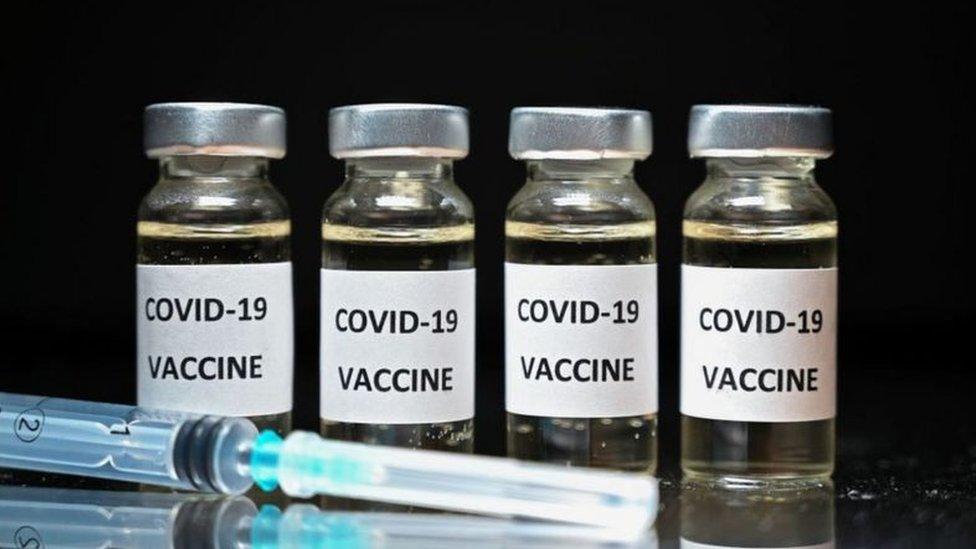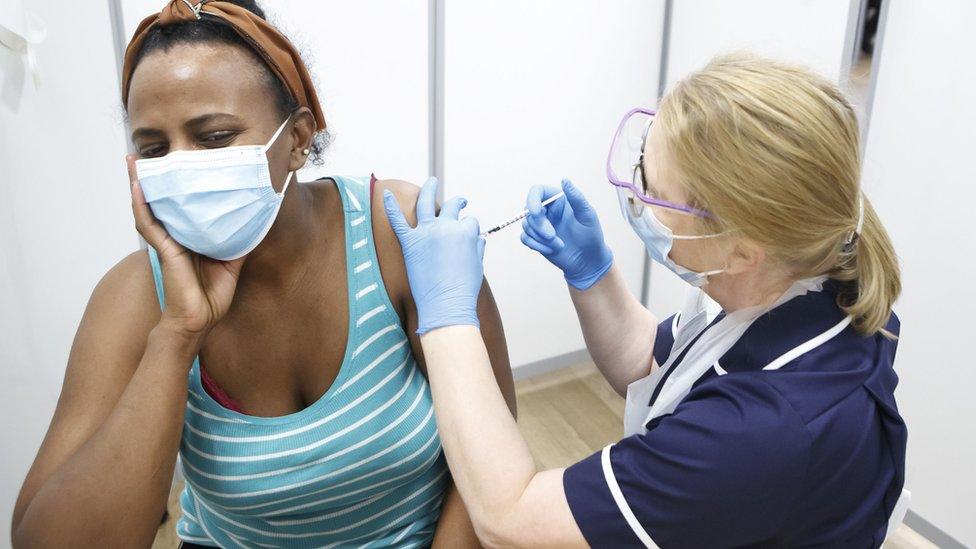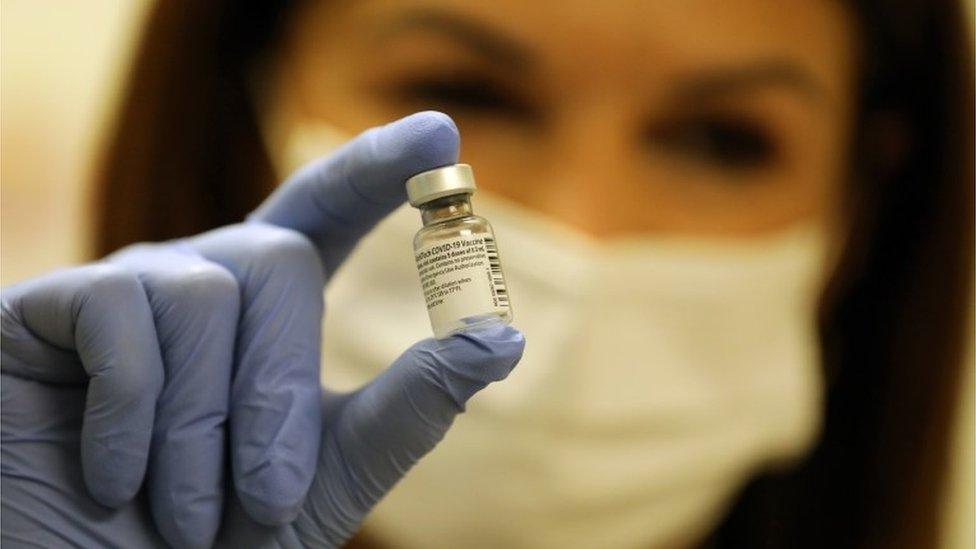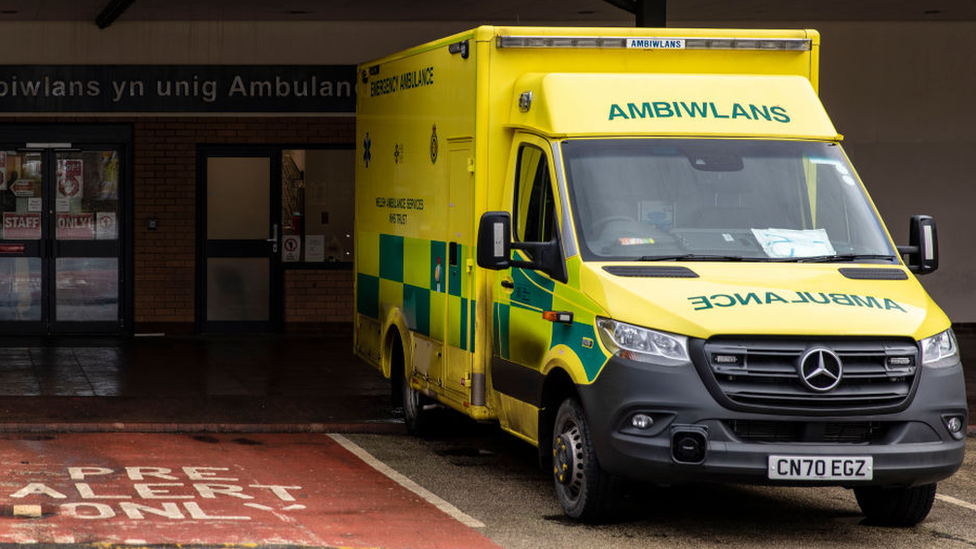Covid vaccine in Wales: Doctors' concerns over 12-week vaccine gap
- Published

People are expected to start receiving the Oxford-AstraZeneca vaccine in Wales from Monday
Health workers are "not certain that they are being adequately protected" with a longer gap between receiving two doses of the Covid vaccine, a doctors' leader has said.
David Bailey, chairman of the British Medical Association in Wales, said morale had taken a "hit" as a result.
The Welsh Government said it was following advice on introducing a 12-week gap between doses.
All four chief medical officers in the UK have backed the move.
They have supported the Joint Committee on Vaccination and Immunisation, which said the focus should be on giving at-risk people the first dose of whichever vaccine they receive.
A second vaccine is being rolled out in Wales from Monday.
The use of the new Oxford-AstraZeneca vaccine comes after some medics and more vulnerable people started to receive the first of their Pfizer-BioNTec jabs in Wales.
Pfizer has said it has tested the vaccine's efficacy only when the two vaccines were given up to 21 days apart.
But the chief medical officers said the "great majority" of initial protection came from the first jab.
Welsh Health Minister Vaughan Gething said the vaccination plan would "ensure that more at-risk people are able to get protection from a vaccine in the coming weeks and months, reducing deaths and starting to ease pressure on our NHS".
Dr Bailey said there was concern among staff that a 12 week gap between receiving two doses of the Pfizer-BioNTech vaccine could lead to "sacrificing some immunity" because trials had involved up to a six week gap between doses.
"They're not convinced, they're not certain that they're being adequately protected," he said.
"There are concerns for everybody working in the health service because of the huge increase in the prevalence and the transmissibility of the Covid virus at the moment, so there's a real concern there is a very high risk of catching it."

LOOK-UP TOOL: How many cases in your area?
GLOBAL SPREAD: How many worldwide cases are there?
THE R NUMBER: What it means and why it matters

- Published1 January 2021

- Published1 January 2021

- Published8 February 2021
